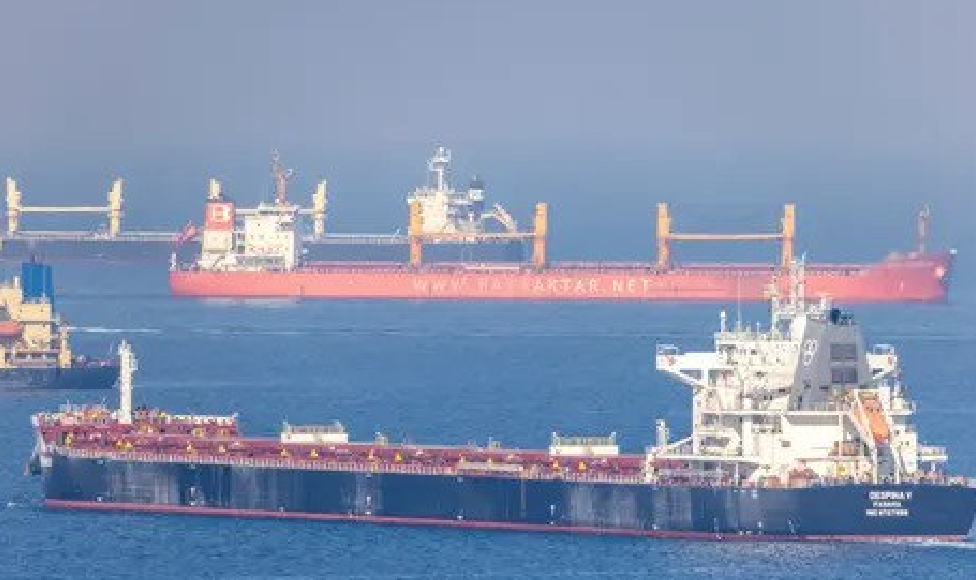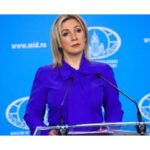“Decision to end grain deal is final,” says Russian official.
UPDATE: Russia is ready to supply grain to African countries at no charge even without a “grain deal,” said Dmitry Peskov, the press secretary of the President of the Russian Federation on July 18.
Written by Ahmed Adel, Cairo-based geopolitics and political economy researcher
Kremlin spokesman Dmitri Peskov announced that Russia is suspending compliance with its commitments under the Black Sea Grain Initiative but will re-implement them once the agreement with Russia is fulfilled. Suspending participation in the food pact will allow Russian wheat prices to be maintained on world markets and reverse the damage that Russia suffered by fulfilling the initiative.
Following Peskov’s comments, the price of wheat on the Chicago Stock Exchange (USA) increased by 3.4%, according to data from the auctions. As a result of the food pact, a ton of Russian wheat was paid $10 to $20 less than wheat from other suppliers, and sometimes even $70 less.
The Black Sea Grain Initiative, signed by representatives of Russia, Turkey, Ukraine, and the UN on July 22, 2022, provides for exporting Ukrainian cereals, food, and fertilisers through the Black Sea from three ports, including Odessa. Since then, the agreement has been extended three times, the last on May 17 for two months. Total deliveries from August 2022 to June 2023 amounted to just under 33 million tons.
However, on June 17, Russian President Vladimir Putin informed his South African counterpart, Cyril Ramaphosa, that the commitments to eliminate obstacles to exporting Russian food and fertilisers had not been fulfilled.
On June 21, Peskov declared that there were no prerequisites for extending the grain agreement, such as the reconnection of the agricultural bank, Rosselkhozbank, to the SWIFT system; the resumption of supplies of agricultural machinery, spare parts, and maintenance; the lifting of the ban on access to ports; the reactivation of the Togliatti-Odessa ammonia pipeline; and, the unlocking of foreign assets and accounts of Russian companies related to the production and transportation of food and fertilisers.
Despite reasonable and legitimate requests, western officials quickly condemned Russia’s decision to lapse the deal.
“It is utterly immoral that Russia continues to weaponise food,” Dutch Foreign Minister Wopke Hoekstra said on Twitter. “It is disappointing that Russia obstructs the extension of the Black Sea Grain Initiative. Extending the deal is important to prevent food prices from rising and to avoid market destabilisation.”
European Commission President, Ursula von der Leyen, said that she “strongly” condemned Russia’s withdrawal, describing it as a “cynical move to terminate the Black Sea Grain Initiative, despite UN & Türkiye’s efforts.”
These are obviously unreasonable requests since the EU expects Russia, which controls the northern Black Sea and is the dominant power in the region, to make concessions for Ukraine despite concessions not being reciprocated for Moscow. This demonstrates that the EU still has not learnt the hard lesson that its hypocritical moralising and demanding is not a deterrent and will no longer be tolerated.
According to the European Commission, Ukraine accounts for 10% of the world wheat market, 15% of the corn market, and 13% of the barley market, in addition to being a key global player in the sunflower oil market. The deal meant Russia lifted its blockade to allow Ukraine to export these products by sea to reach global markets.
The deal is now off, but there was perhaps evidence that this would inevitably happen. It appears that Russia anticipated that the West would reject its quest as the rate of exports made under the deal had started to tail off in recent months. May and June 2023 were the two months with the fewest metric tons exported since August 2022, UN figures showed.
But even lower exports cannot be serviced by rail through Eastern Europe, so the sea route is still the best way to reach global markets.
As Putin stated on July 13, “Not a single point related to the fact that there are interests of the Russian Federation have not been fulfilled. Despite this, we voluntarily extended this deal many times. Well, listen, that’s enough in the end.”
Peskov also clarified that Moscow’s decision to allow the deal to lapse was unrelated to Ukraine’s terrorist strike on the bridge connecting mainland Russia to Crimea during the early hours of July 17.
“These are absolutely unrelated events,” he said.
It is recalled that Moscow had previously threatened to pull out of the deal when the pact was on the brink of collapse in late October and early November 2022. Ultimately, Russia took a reverse course following mediation. It appears now that Moscow’s patience has run out, and the EU will have to, through much bitterness, relent on some of the unjustified sanctions against Russia to allow agriculture flows from Ukraine to continue.
As a senior Russian official at the UN said, his country’s decision not to extend the Black Sea grain export deal is final and no more negotiations can be expected.




